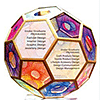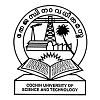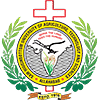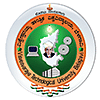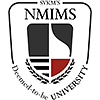MA Mass Communication and Journalism Syllabus and Subjects

MA Journalism and Mass Communication durations for two years and is curated into 4 semesters. The syllabus of the MA Journalism and Mass Communication course covers the concepts of news, history of journalism, political issues, and social issues. The course includes core and elective subjects.
Semester Wise MA Mass Communication and Journalism Syllabus
Master of Arts journalism and mass communication syllabus aims to help students learn the foundation of writing, journalism, and broadcasting news. MA Journalism and Mass Communication course are designed in such a way that it helps the scholars to understand the fundamental study of mass media and current happenings and dealing of situations.
The semester wise syllabus of the MA in Mass Communication and Journalism course is given below:
|
Semester I |
Semester II |
|
Development Communication |
Introduction to Communication |
|
Media Management |
Print Media in India: Growth & Development |
|
Media Laws and Ethics |
Print Media |
|
Mass communication research |
Electronic Media & Photography |
|
Radio and TV Production techniques |
Media management |
|
History & development of mass media |
Advertising (practical) |
|
Semester III |
Semester IV |
|
Media and Human Rights |
Intercultural and International Communication |
|
Film Studies |
New Media Technology |
|
International communication Rural communication |
Public Relations and Corporate Communication |
|
Reporting and editing for electronic media |
Environment communication |
|
Intercultural communication |
Dissertation |
|
Internship |
Study tour & reporting |
MA Mass Communication and Journalism Subjects
This course is apt for candidates who are more inclined towards the fields like reporting, advertising, and journalism. Master of Arts journalism and mass communication subjects includes core and elective subjects. Students can even specialize in film making, event management, Photography, Public relations, etc.
MA Journalism and Mass Communication subjects list are given below:
- Advertising & Corporate Communication
- Development of Media
- Media Law Ethics
- Media Management
- Media Productions
- Principles of Mass Communication
MA Mass Communication and Journalism Course Structure
MA Journalism and Mass Communication durations for two years and is curated into 4 semesters. There are both core and elective subjects present in the course. The course structure is as follows:
- IV Semesters
- Core Subjects
- Elective Subjects
- Industrial Training
- Projects
- Internships
- Study Tour
MA Mass Communication and Journalism Teaching Methodology and Techniques
The course curriculum takes into account different teaching methodology and technique consists of traditional classroom-based teaching methods. Apart from traditional teaching methods, the scholars are trained in very specialization like writing, editing, photography etc. Listed below are the teaching methodology and techniques in general:
- Projects
- Conceptualized Learning
- Traditional Classroom-Based Teaching
- Field-Based Learning/Study Tour
- Practicals/Assignments
- Internships
MA Mass Communication and Journalism Projects
The projects are given for interdisciplinary learning, so that students can learn about the concepts in detail and in-depth. The project work with a report should be submitted by the end of the fourth semester. Some of MA Journalism and Mass Communication projects are:
- The attitude of Nigerians to the Role of Mass Media in the Enthronement of Democracy Since 1999.
- Effect of News Commercialization on the Content of Private Media.
- Effects of Mass Media on Yoruba Culture and Tradition.
- Hazards and prospects of Journalism in Nigeria.
- Impact of Social Media on Consumer Behaviour.
MA Mass Communication and Journalism Reference Books
Nowadays, reference books are available both online and offline. Students are intended to read books while pursuing the course. Thus it provides clear knowledge on the concepts and specialization in detail. Some of the popular books are:
|
Name of the Books |
Authors |
|
Mass Communication in India |
Keval J. Kumar |
|
Cases in Communications Law |
John D Zelezny |
|
Media Planning: A Practical Guide |
Jim Surmanek |
|
Mass Communication Theory: Foundations, Ferment, and Future |
Stanley J. Baran |

